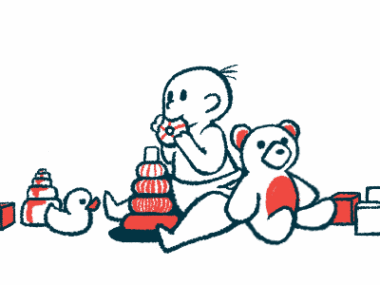Fertility treatment successful for most men with CF, large study finds
79% of patients referred for fertility treatment become biological parents
Written by |

Nearly 80% of men with cystic fibrosis (CF) who underwent fertility treatment due to a lack of sperm became biological parents, according to the largest study of its kind.
“Assisted reproductive technologies have removed many limitations to parenthood for CF males,” researchers wrote in the study “Success Rates of Assisted Reproduction for Men With Cystic Fibrosis,” which was published in Pediatric Pulmonology.
Nearly all men with CF are born with a condition called congenital bilateral absence of the vas deferens, or CBAVD. It’s marked by a lack of the vas deferens, or the tube that transports sperm from the epididymis, a duct behind the testes, before ejaculation. This leads to infertility due to a complete absence of sperm in semen, known as azoospermia.
Advancements in assisted reproductive technology
Advancements in assisted reproductive technology have allowed men with CF to become biological parents. Such treatments include surgical sperm retrieval (SSR), which is a procedure to extract sperm from the epididymis or testicle, and intracytoplasmic sperm injection (ICSI), or when healthy sperm is injected directly into a mature egg.
A research team at the University of Manchester, in the U.K., conducted the “largest study to date” to examine the success rate of SSR and ICSI for men with CF.
From 2000 to 2022, 71 men with CF and confirmed azoospermia underwent fertility treatment when they were a mean age of 31.3 years. Most (82%) had pancreatic insufficiency.
Following the SSR procedure, viable sperm was recovered in all but one patient (98.6%), with no serious surgical complications, such as bleeding or infection.
Most (94%) went on to have ICSI, with 56 of 67 couples (84%) achieving pregnancy and a live birth of a healthy infant. Ten couples with successful egg fertilization and embryo transfer had a subsequent implantation failure or early miscarriage. One couple had failed egg fertilization likely due to poor sperm motility but later had a successful pregnancy with donor sperm.
80% or higher success rate for men younger than 40 years
Success rate was 80% or higher for those younger than 40 years. For the two patients older than 40, implantation failed despite successful sperm retrieval and egg fertilization.
Factors that did not impact the success rate of fertility treatment included CF-causing mutations, the type of CFTR modulator therapy, lung function, body mass index (a measure of body fat content), and pancreatic insufficiency.
The mean values of testosterone, follicle-stimulating hormone, and luteinizing hormone were all within the normal range in the 61 patients with complete hormone profiles. Of the 55 patients who underwent testicular ultrasound, 36 were normal.
Ten of the 71 men (14%) with CF referred for fertility treatment had died by the study’s conclusion, five of whom within two years of their child’s birth. Mean lung function was higher among surviving patients than those who died (72.8% vs. 38%), as was body mass index (25.0 vs. 20.3 kg per square meters).
“This is the largest study of male CF fertility success rates to date and demonstrates that fertility treatment results for [CF men] are excellent, with 79% of patients referred for fertility treatment successfully becoming biological parents,” the researchers concluded.
Still, CF centers should “consider carrying out a thorough risk assessment of CF patients especially those with poor baseline weight and lung function,” the researchers added. This will ensure “frank discussions with patients and their partners about long term prognosis and disease management before referral to fertility services.”








